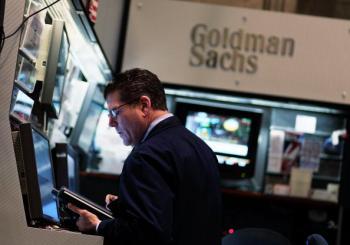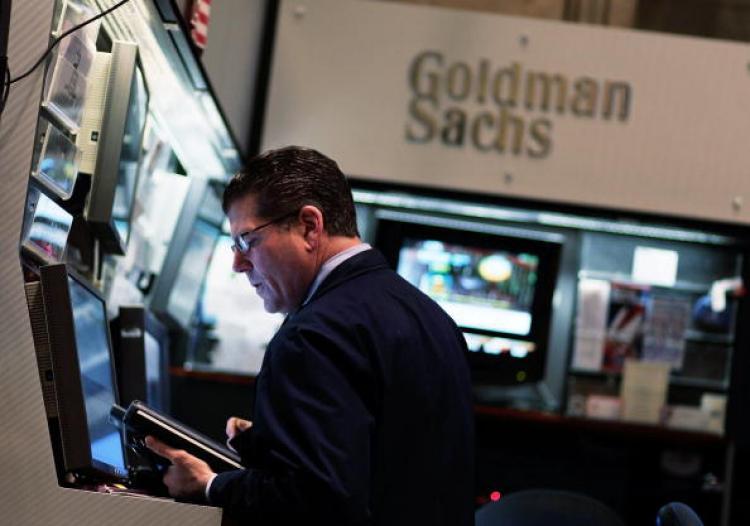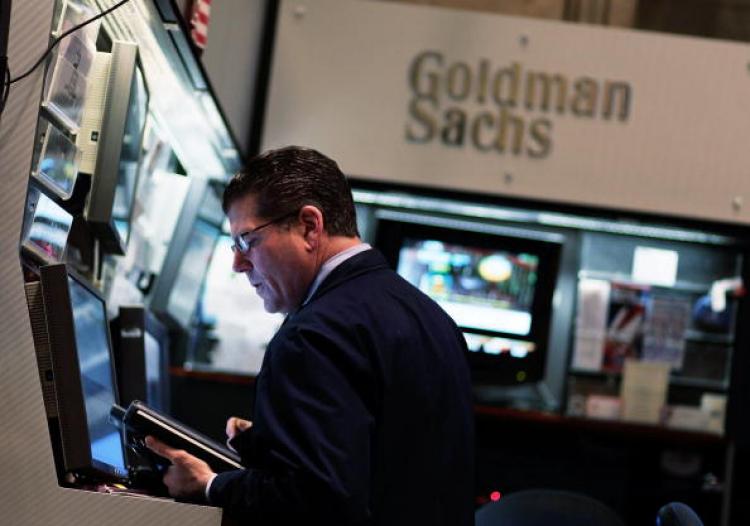Goldman Sachs Reaped While Mortgages Tanked, E-mails Show
Newly released e-mails show that Goldman Sachs knew it was making money betting against subprime mortgages.

A financial professional works in the Goldman Sachs booth on the floor of the New York Stock Exchange April 16, 2010 in New York City. Chris Hondros/Getty Images
|Updated:





